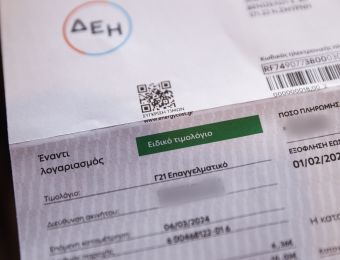Greece’s Parliamentary Election: New Democracy Expected to Secure Dominant Victory

Πηγή Φωτογραφίας: Αρχείου
As Greece gears up for its parliamentary election on Sunday, the political landscape is defined by the impending victory of Kyriakos Mitsotakis’ New Democracy party. Opinion polls indicate a significant lead for New Democracy over the leftist Syriza party, which held power during the peak of the Greek debt crisis from 2015 to 2019. The election comes after a previous round in May, which saw New Democracy emerging as the front runner but falling short of a majority. As the country prepares for the upcoming polls, the focus remains on the potential implications of a New Democracy triumph and the challenges facing Greece.
May Election and Political Landscape: In the May 21 election, New Democracy secured a commanding lead of 20 percentage points over Syriza, marking the widest margin Greece has witnessed since the 1970s. Despite this significant advantage, New Democracy fell short of the majority required to govern independently due to Greece’s proportional voting system. Mitsotakis, the leader of New Democracy, decided against seeking coalition partners, emphasizing the need for a robust and stable government to drive necessary reforms. The other parties, in turn, chose not to form their own coalition, resulting in a decision to hold a repeat election.
To comply with constitutional requirements, Mitsotakis stepped aside, enabling a caretaker government to assume control until the upcoming election.
Opinion Polls and Projections: Subsequent opinion polls conducted since the May election consistently point to New Democracy (ND) widening its lead ahead of Sunday’s vote. A recent poll conducted by the RASS polling agency on June 19 revealed ND’s support at 42.9%, compared to Syriza’s 17.9%. These numbers suggest that ND is likely to secure a comfortable majority of 166 seats in the 300-seat parliament.
Among other parties, the Socialist PASOK party ranks third with 12.3% support. The polls also indicate the potential entry of up to seven parties into the parliament, including the leftist Plefsi Eleftherias, founded by former Syriza lawmaker Zoe Konstantopoulou, and a newly formed far-right party called Spartans.
Election System and Eligibility: The repeat election will operate under a semi-proportional representation system, known as reinforced proportionality, featuring a sliding scale seat bonus. Parties must secure a minimum of 3% of the vote to gain representation in parliament for a four-year term.
Under the revised system, the winning party receives a bonus of 20 to 50 seats. If it achieves at least 25% of the vote, the party is awarded 20 seats outright. In the event of securing approximately 40% of the vote, the winning party can earn up to 50 seats.
With over 9.9 million eligible Greek citizens aged over 17, the outcome of the election will depend on the engagement and choices made by a significant portion of the population.
Current Parliamentary Composition: Following the May 21 election, the current parliament is composed of several parties. New Democracy, led by Kyriakos Mitsotakis, holds the majority with 146 seats. Syriza, the left-wing party led by Alexis Tsipras, has 71 seats. The Centre-left party PASOK-KINAL, led by Nikos Androulakis, holds 41 seats. The Communist party KKE, led by Dimitris Koutsoumbas, has 26 seats. Lastly, the right-wing party Hellenic Solution, led by Kyriakos Velopoulos, has 16 seats.
The leftist Mera25 party, founded by former finance minister Yanis Varoufakis during Syriza’s rule, failed to secure parliamentary representation in the May 21 election.
Διαβάστε όλες τις τελευταίες Ειδήσεις από την Ελλάδα και τον Κόσμο





























Το σχόλιο σας